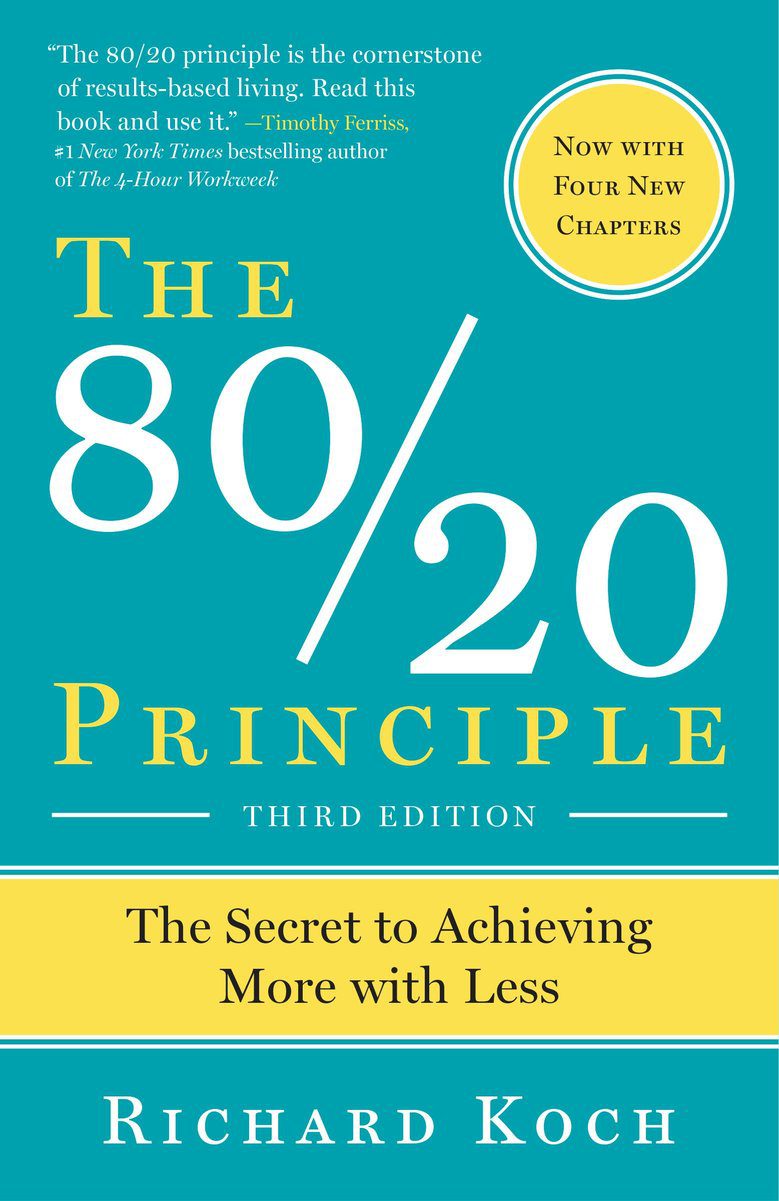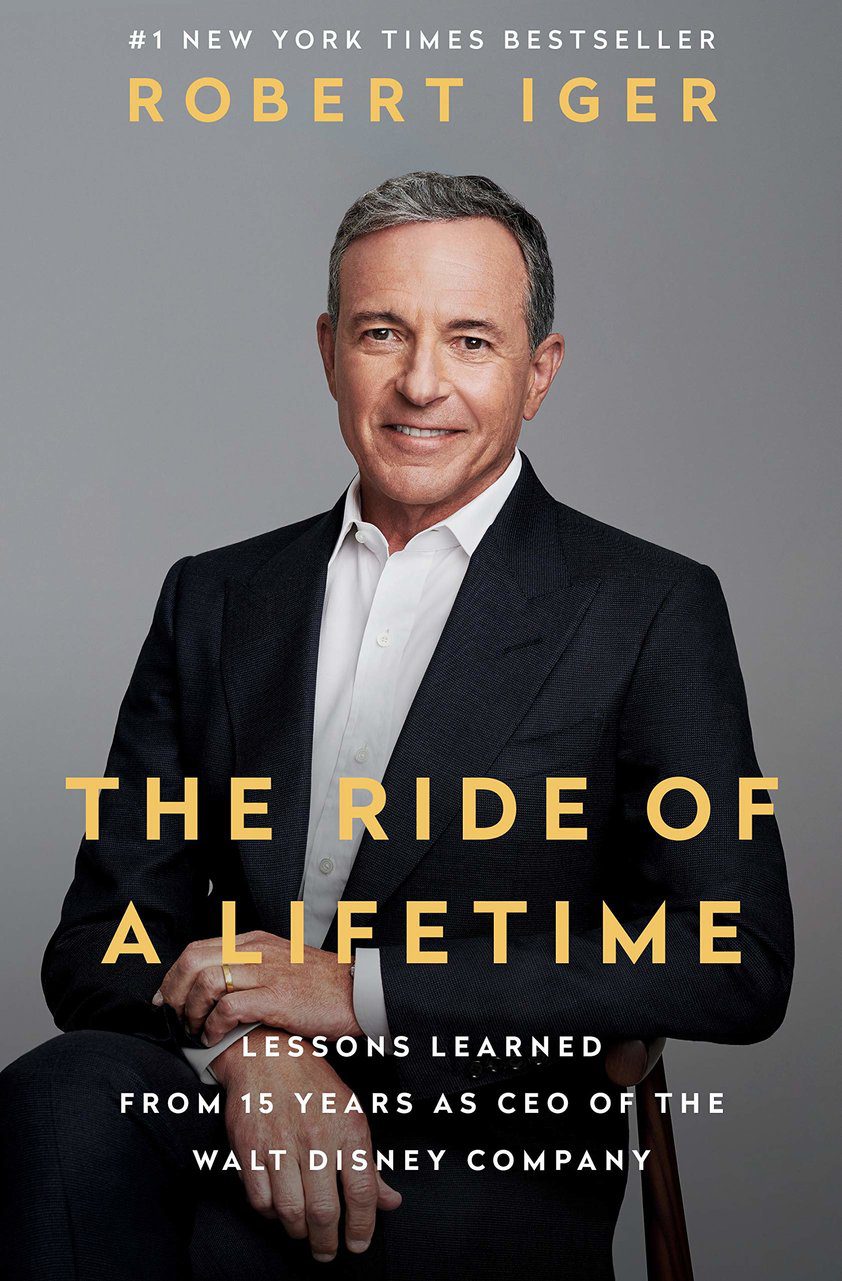Print | Kindle (eBook) | Audiobook
The 80/20 Principle shows how we can achieve much more with much less effort, time, and resources, simply by identifying and focusing our efforts on the 20 percent that really counts.
The unspoken corollary to the 80/20 principle is that little of what we spend our time on actually counts. But by concentrating on those things that do, we can unlock the enormous potential of the magic 20 percent, and transform our effectiveness in our jobs, our careers, our businesses, and our lives.
Conventional wisdom is not to put all your eggs in one basket. 80/20 wisdom is to choose a basket carefully, load all your eggs into it, and then watch it like a hawk.
Here are my favourite takeaways from reading the 80/20 principle:
- The 80/20 Principle asserts that a minority of causes, inputs, or effort usually lead to a majority of the results, outputs, or rewards. Taken literally, this means that, for example, 80 percent of what you achieve in your job comes from 20 percent of the time spent. Thus for all practical purposes, four-fifths of the effort—a dominant part of it—is largely irrelevant. This is contrary to what people normally expect.
80/20 Principle states that there is an inbuilt imbalance between causes and results, inputs and outputs, and effort and reward.
Examples of 80/20 Principle
- Twenty percent of products usually account for about 80 percent of dollar sales value; so do 20 percent of customers.
- Twenty percent of products or customers usually also account for about 80 percent of an organization’s profits.
- In society, 20 percent of criminals account for 80 percent of the value of all crime.
- Twenty percent of motorists cause 80 percent of accidents.
- Twenty percent of those who marry comprise 80 percent of the divorce statistics (those who consistently remarry and redivorce distort the statistics and give a lopsidedly pessimistic impression of the extent of marital fidelity).
- Twenty percent of children attain 80 percent of educational qualifications available. In the home, 20 percent of your carpets are likely to get 80 percent of the wear.
- Twenty percent of your clothes will be worn 80 percent of the time. And
- if you have an intruder alarm, 80 percent of the false alarms will be set off by 20 percent of the possible causes.
The rich get richer, not just (or mainly) because of superior abilities, but because riches beget riches.
Variations of the 80/20 Principle
1949: Zipf’s Principle of Least Effort
- Zipf’s principle said that resources (people, goods, time, skills, or anything else that is productive) tended to arrange themselves so as to minimize work, so that approximately 20–30 percent of any resource accounted for 70–80 percent of the activity related to that resource.
1951: Juran’s Rule : Rule of the Vital Few and Trivial Many
His great idea was to use the 80/20 Principle, together with other statistical methods, to root out quality faults and improve the reliability and value of industrial and consumer goods.
Most of the time, we do not realize the extent to which some resources, but only a small minority, are superproductive—what Joseph Juran called the “vital few”—while the majority—the “trivial many”—exhibit little productivity or else actually have negative value. If we did realize the difference between the vital few and the trivial many in all aspects of our lives and if we did something about it, we could multiply anything that we valued.
- Conventional wisdom is not to put all your eggs in one basket. 80/20 wisdom is to choose a basket carefully, load all your eggs into it, and then watch it like a hawk.
Application of the 80/20 Principle implies that we should do the following:
- celebrate exceptional productivity, rather than raise average efforts
- exercise control over our lives with the least possible effort
- be selective, not exhaustive
- strive for excellence in few things, rather than good performance in many
- only do the thing we are best at doing and enjoy most
- look beneath the normal texture of life to uncover ironies and oddities
- in every important sphere, work out where 20 percent of effort can lead to 80 percent of returns
- calm down, work less and target a limited number of very valuable goals where the 80/20 Principle will work for us, rather than pursuing every available opportunity.
- make the most of those few “lucky streaks” in our life where we are at our creative peak and the stars line up to guarantee success.
The 80/20 Principle is most useful when we can identify all the forces beneath the surface so that we can stop the negative influences and give maximum power to the most productive forces.
All the Best in your quest to get better. Don’t Settle: Live with Passion.



2 Comments
Pingback: 100 Books Reading Challenge 2020 – Lanre Dahunsi
Pingback: The Top 12 Books on Productivity. – Lanre Dahunsi